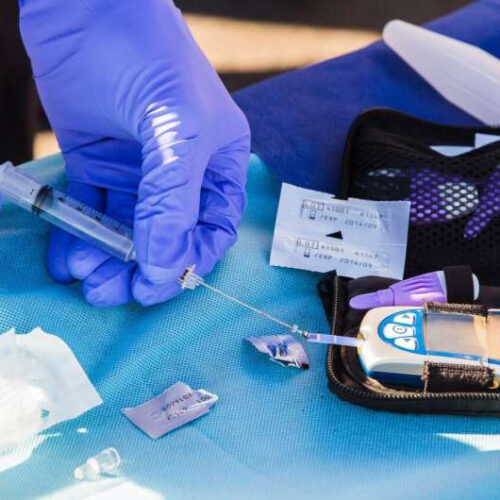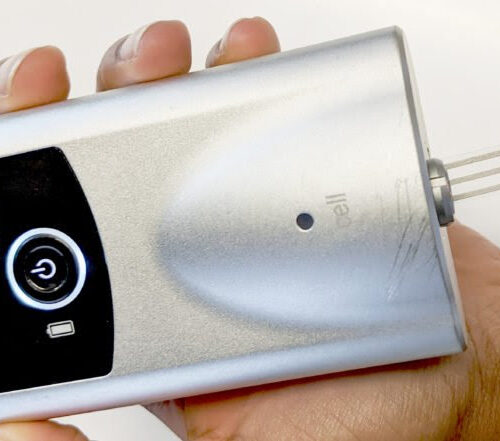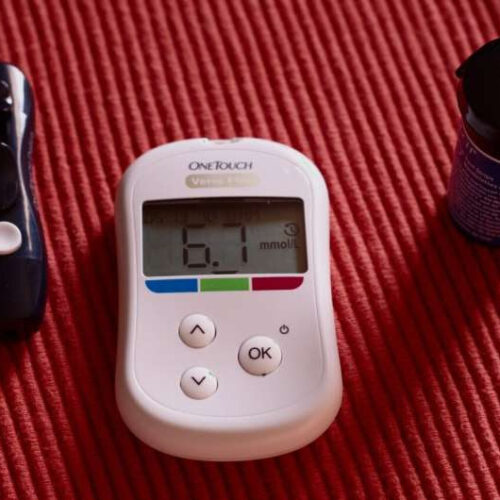by University of Southampton Credit: University of Southampton Innovative in-sole sensors will alert diabetic patients during excessive or extended activities that could trigger foot ulcers in a new system being developed at the University of Southampton. The LOad Monitoring and Intervention System (LOMIS) processes real-time data from three directional force sensors and detects physical activities over...
Category: <span>Diabetes</span>
In vivo drug discovery for β-cell proliferation in diabetes
by Karolinska Institutet Credit: Unsplash/CC0 Public Domain In a study published in Nature Metabolism, researchers at the department of Cell and Molecular Biology developed a novel technique to identify small molecules that can make insulin-producing β-cells divide. Olov Andersson and Jeremie Charbord explains: “Diabetes is characterized by the progressive loss of functional β-cells. One possible approach to curing diabetes...
A long-term study shows strong links between gestational diabetes during pregnancy and type-1 and type-2 diabetes later in life
EUROPEAN SOCIETY OF ENDOCRINOLOGY A 23 year study being presented at the 23rd European Congress of Endocrinology (e-ECE 2021), on Monday 24 May 2021 at 14:40 CET (http://www.ece2021.org), has found that women who experience gestational diabetes (GDM) when they are pregnant, are more prone to developing type-1 and type-2 diabetes later in life. The long-term...
Sotagliflozin shows benefit for difficult-to-treat form of heart failure
AMERICAN COLLEGE OF CARDIOLOGY Patients with both diabetes and heart failure who were treated with sotagliflozin, a novel investigational drug for diabetes, for a median of nine to 16 months experienced reductions of 22% to 43% in the risk of death or worsening heart failure compared with similar patients who were treated with a placebo....
Personalized sweat sensor reliably monitors blood glucose without finger pricks
Many people with diabetes endure multiple, painful finger pricks each day to measure their blood glucose. Now, researchers reporting in ACS Sensors have developed a device that can measure glucose in sweat with the touch of a fingertip, and then a personalized algorithm provides an accurate estimate of blood glucose levels. A hand-held device combined...
Two Pandemics Clash as Doctors Find That Covid Spurs Diabetes
By Jason Gale May 4, 2021, 9:00 PM MST When Ziyad Al-Aly’s research team told him how often diabetes appeared to strike Covid-19 survivors, he thought the data must be wrong, so he asked his five colleagues to crunch the numbers again. Weeks later, they returned the same findings after sifting through millions of patient records. By...
Prediabetes may not be as benign as once thought
AMERICAN COLLEGE OF CARDIOLOGY People with prediabetes were significantly more likely to suffer a heart attack, stroke or other major cardiovascular event when compared with those who had normal blood sugar levels, according to research being presented at the American College of Cardiology’s 70th Annual Scientific Session. Researchers said the findings should serve as a wake-up call for clinicians...
Risk factors for a severe course of COVID-19 in people with diabetes
People with diabetes are at increased risk of developing a severe course of COVID-19 compared to people without diabetes. The question to be answered is whether all people with diabetes have an increased risk of severe COVID-19, or whether specific risk factors can also be identified within this group. A new study by DZD researchers...
Researchers develop comprehensive pregnancy care management plan among Chinese pregnant women type 1 diabetes
UNIVERSITY OF SCIENCE AND TECHNOLOGY OF CHINA The research team led by Prof. WENG Jianping from University of Science and Technology of China (USTC) of the Chinese Academy of Sciences has implemented a comprehensive preconception-to-pregnancy management plan, namely CARNATION study, for women with type1 diabetes (T1D), to reduce the risks of adverse pregnancy outcomes and...
Muscle gene linked to type 2 diabetes
by Lund University Credit: Unsplash/CC0 Public Domain People with type 2 diabetes tend to have poorer muscle function than others. Now a research team at Lund University in Sweden has discovered that in type 2 diabetes, a specific gene is of great importance for the ability of muscle stem cells to create new mature muscle cells. The findings...




